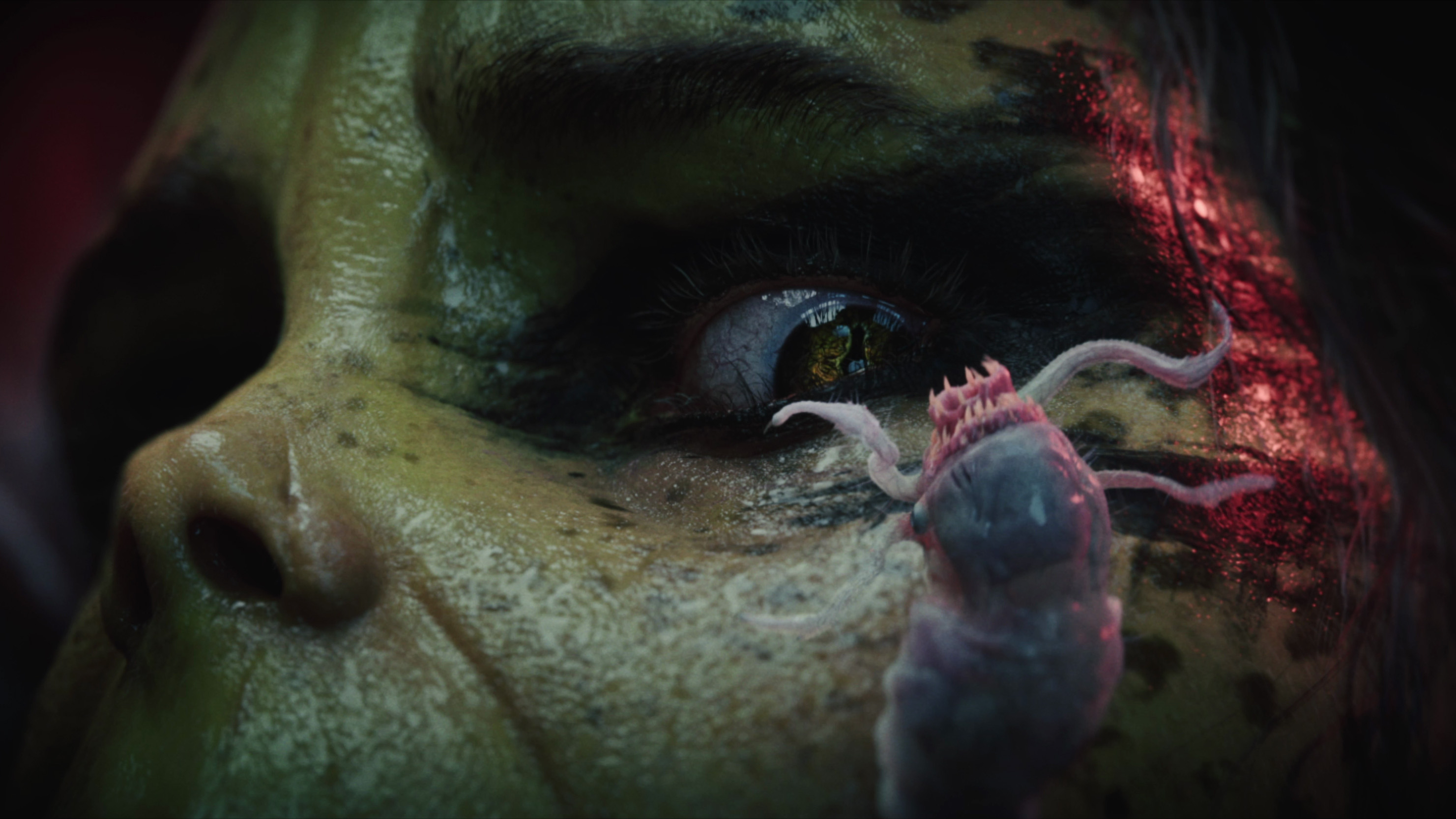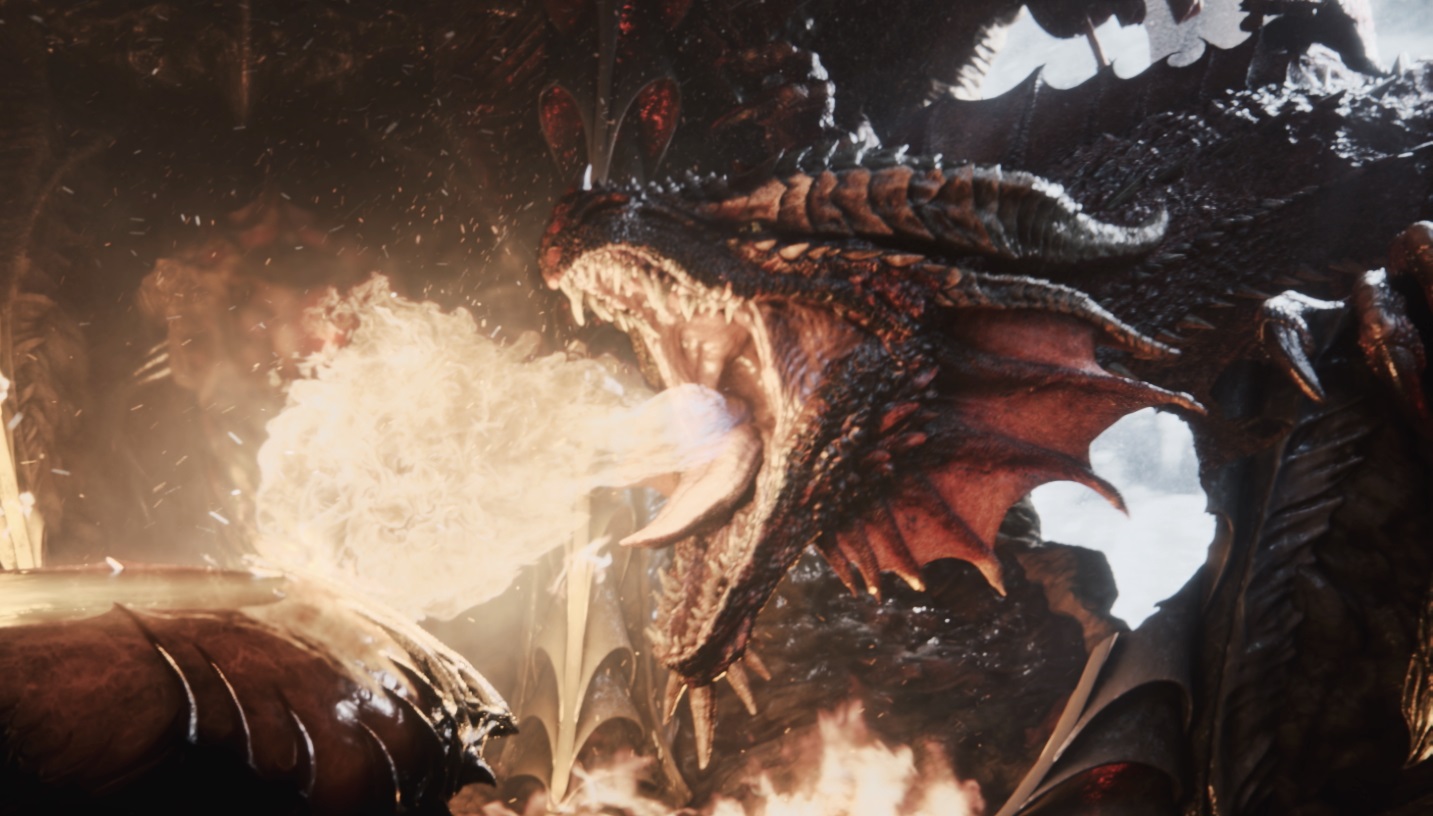How Larian is keeping Baldur's Gate 3 weird
Writer Adam Smith talks about playing with the conventions of D&D, and player expectations, when writing a gigantic RPG.

I'm not a D&D diehard, but I have to say that when I think about the series, I don't immediately think about mind flayers. I think about, well, dungeons, and dragons, and then maybe goblins and experience points. But mind flayers, the scary Cthulhu-esque wizards who melt brains, serve as Baldur's Gate 3's antagonists and start off the game by planting a parasite in your head which will eventually cause a very gruesome death. Baldur's Gate 3's reveal trailer leaned heavy into the body horror, which is just one of many ways it's trying to tap into the weird side of D&D.
"There's some stuff I can't spoil, but there are some places we go to and some things we cover that have never been done before [in a D&D game]," says senior writer Adam Smith. Baldur's Gate 3 is hardly the first D&D game to include mind flayers—you can encounter them as enemies in BG1&2, even—but Larian's approach to them is a bit different.

- Our big Baldur's Gate 3 preview
- How Baldur's Gate 3 compares to Divinity: Original Sin 2
"What we didn't want is to have mind flayers become just a thing that you kill," he says. "We're treating them as something very eldritch, very otherworldly... Part of that means going through the history of them and seeing what makes them tick and what they want. The way that they communicate with people in the lore is often to seduce and cajole. They kind of figure out what makes you tick and they play on it. They gaslight people. But at the same time, they don't really understand us in the same way we don't understand them. If someone's writing a mind flayer and making it a little too communicable, it's like, 'make it stranger, and think of it as almost machine-like. It's a device that's kind of inside you and reading you.' It's hard to get exactly right."
Larian is treating other creatures you encounter in similar ways, too. The goal, Smith says, is to give every character in the world more depth than just a stat sheet, race, and class. That even goes for the monsters. Most of them will have something to say, even if you're probably going to end up fighting them.
Smith gives an example: "Our goblins have a lot to say. They're not just these mobs that you kill for experience. They can be [sometimes], but so can the humans or the tieflings. We're finding these aspects, which are all taken directly from the lore. You read about goblins in Volo's Guide, there's a culture there we can explore and do some interesting things with."
Larian's last RPG, Divinity: Original Sin 2, used a "tag" system to define aspects of your character—race, origin, and major actions—which would then affect dialogue options and how NPCs reacted to you. That system returns with more depth in Baldur's Gate 3, but it's paired with a new emphasis on dice rolls befitting a D&D game.
Smith has a lot to say about the interplay between that fundamental D&D mechanic and writing an RPG. My takeaway: the story sounds like it'll be a bit less Bioware and a bit more Obsidian, with shades of Knights of the Old Republic 2's moral uncertainty.
The biggest gaming news, reviews and hardware deals
Keep up to date with the most important stories and the best deals, as picked by the PC Gamer team.
"We have something in Act 1 with some people who are in really serious trouble," he says. "You can get them out of the trouble either by fighting a bunch of things, or by getting rid of those things in a different way, or by sneaking around those things. And then you can help them. If you go through every single part of that dialogue and roll successfully, something really fucking bad happens to those people you just rescued, because success in that case ends badly for them. You don't necessarily know that at the time. You might figure it out. But you're going to meet them a bit down the line and go 'oh no, I thought that went well.'
"If you fail those rolls, they get the hell out of Dodge. It's actually better for them, because your fuck-ups on the rolls make them say 'I don't really trust you, I'm going to get out of here.' And then they live long happy lives somewhere else in the world."
The goal, at least, is to never have absolute good and bad choices. "We want to have those moments where you think you're doing the right thing, but the world's more complicated than that," Smith says. "And also points where you're playing an evil character, we're going to push back against that as well. We want to give you freedom, but we want to say 'the world isn't just here for you. It exists beyond you.'"
For more on Baldur's Gate 3, check out our detailed preview.

Wes has been covering games and hardware for more than 10 years, first at tech sites like The Wirecutter and Tested before joining the PC Gamer team in 2014. Wes plays a little bit of everything, but he'll always jump at the chance to cover emulation and Japanese games.
When he's not obsessively optimizing and re-optimizing a tangle of conveyor belts in Satisfactory (it's really becoming a problem), he's probably playing a 20-year-old Final Fantasy or some opaque ASCII roguelike. With a focus on writing and editing features, he seeks out personal stories and in-depth histories from the corners of PC gaming and its niche communities. 50% pizza by volume (deep dish, to be specific).

